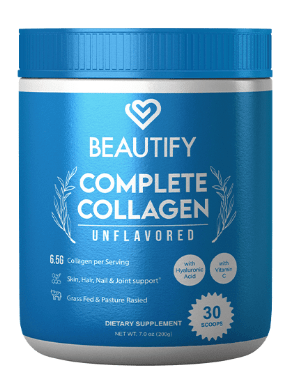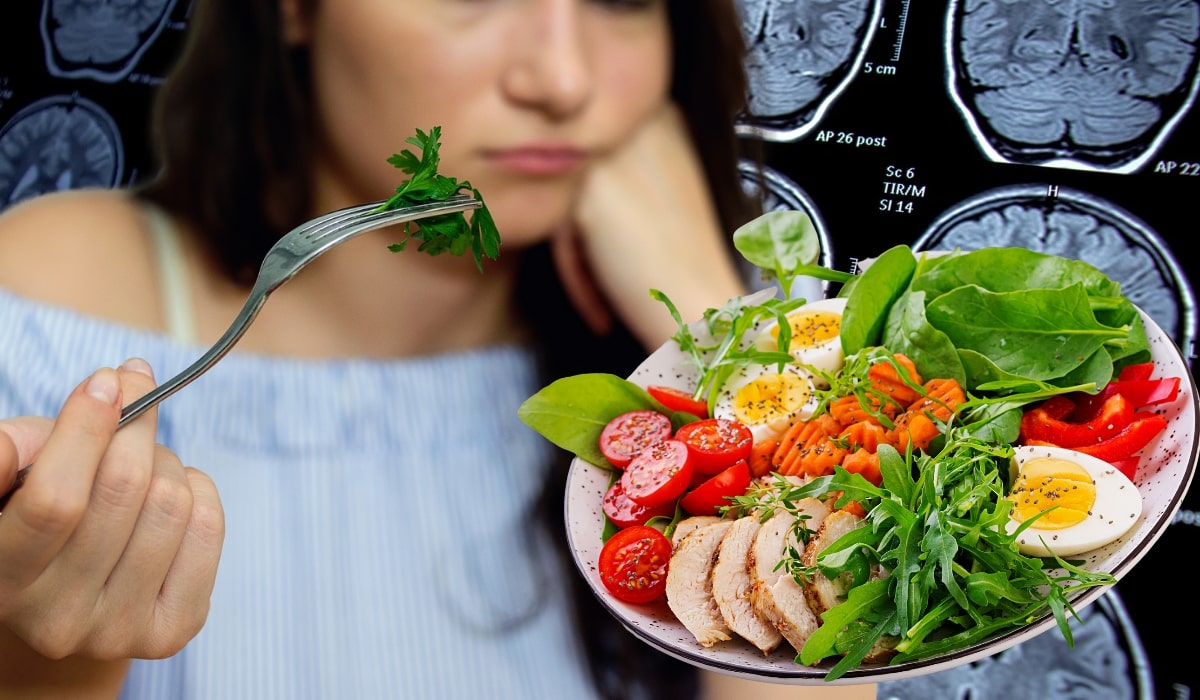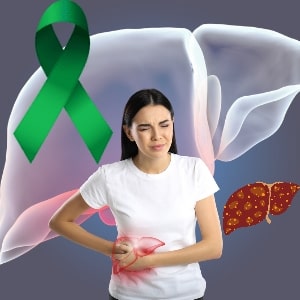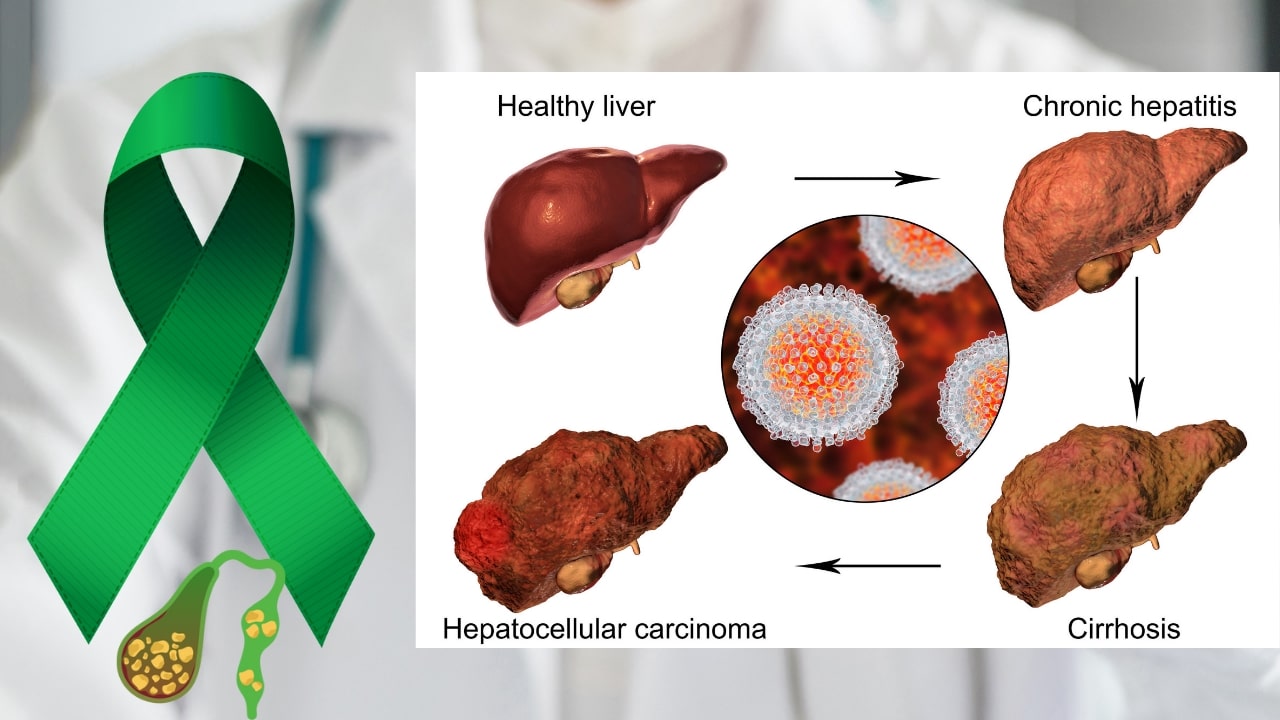Improve your sleep with our expert tips on how to manage Sleep Disorders and unhealthy diet. Enhance your nutrition for better rest!

Can a bad diet affect your sleep? The answer is a resounding yes. Unhealthy diet is one of the major causes of sleep disorders such as insomnia, sleep deprivation, and poor sleep.
According to studies, people with eating disorders are more likely to suffer from sleep problems and disorders. Obesity, which is often caused by unhealthy diet, is also linked to sleep disorders and can lead to serious health problems such as heart attack and cause mortality.
Research has found that consuming foods high in fats and sugars can disrupt the body’s natural sleep-wake cycle and increase stress levels, leading to further sleep problems. On the other hand, studies have shown that consuming foods rich in nutrients such as nuts can have benefits for sleep quality and duration.
How Do Sleep Disorders Affect Daily Life?
Sleep deprivation affects daily life in many ways. It can lead to decreased productivity at work or school, irritability, mood swings, memory loss, lack of concentration, and even depression. People who suffer from insomnia may find it difficult falling asleep or staying asleep at night causing them to feel fatigued during the day.
Unhealthy Sleep Patterns
Sleep disorders affect millions of people worldwide. Poor sleeping habits can be caused by various factors including lifestyle choices like an unhealthy diet. Eating late at night or consuming meals high in sugar or caffeine close to bedtime can interfere with normal sleeping patterns.
Health Issues Related to Sleep Deprivation
The health issues related to sleep deprivation are numerous. Studies have shown that lack of adequate restful sleep increases the risk of developing chronic conditions such as diabetes, obesity, hypertension (high blood pressure), heart disease and stroke.
Are Sleep Disorders Dangerous?
Yes! Sleep disorders are dangerous if left untreated over time. They have been linked with an increased risk of accidents due to fatigue-related errors while driving or operating heavy machinery.
Sleep Loss Epidemic
The World Health Organization (WHO) has declared the sleep loss epidemic a public health crisis. This is because of its negative impact on physical and mental health, as well as social and economic productivity.
Improving Diet Intake to Prevent Sleep Disorders
Improving diet intake and reducing consumption of unhealthy foods can be an effective way to prevent and manage sleep disorders. Eating foods rich in nutrients such as nuts, fruits, vegetables, lean protein sources like chicken or fish can improve overall health and promote better sleeping habits.

The Link Between Nutrition and Sleep
Nutrition and sleep are two essential components of a healthy lifestyle. However, many people fail to realize the significant impact that nutrition has on sleep quality and duration. The relationship between nutrition and sleep is complex, but understanding it can help you make better choices when it comes to your diet and sleep habits.
Nutrition Affects Sleep Quality and Duration
The food we eat plays a crucial role in regulating our hormones, which affects our sleep-wake cycle. For example, consuming foods high in sugar or caffeine before bedtime can lead to disrupted sleep patterns. Eating heavy meals close to bedtime can cause discomfort and make it harder to fall asleep.
Hunger at Night Can Disrupt Sleep
Hunger pangs at night can also disrupt your sleep. Going to bed hungry can make it difficult to fall asleep or stay asleep throughout the night. Eating a small snack before bed can help alleviate hunger without causing discomfort.
Macronutrients and Vitamins Play a Crucial Role
Macronutrients such as carbohydrates, proteins, and fats play a crucial role in regulating hormones that affect sleep. Carbohydrates increase serotonin levels in the brain, which helps regulate mood and promotes relaxation.
Proteins contain amino acids that help produce neurotransmitters like dopamine and norepinephrine that regulate alertness during the day.
Vitamins also play an important role in promoting healthy sleep patterns. Vitamin B6 helps produce melatonin, which regulates our body’s internal clock; vitamin D deficiency has been linked to poor quality of sleep.
Blood Sugar Levels Can Impact Sleep Quality
Blood sugar levels also have an impact on our ability to get restful sleep. High blood sugar levels cause insulin resistance, leading to increased inflammation throughout the body that negatively impacts overall health—including quality of sleep.
Sugar Consumption Before Bedtime Can Lead To Disruptions
Consuming sugary foods before bedtime leads to spikes in blood sugar levels making it harder for us to fall asleep. Sugar consumption can lead to a “sugar crash” that causes us to wake up in the middle of the night.
Effects of Unhealthy Diet on Sleep Disorders:
Unhealthy Diet and sleep disorders have a complex relationship. While it is true that poor sleep habits can lead to unhealthy food choices, the reverse is also true.
Consuming an unhealthy diet can disrupt the natural sleep-wake cycle and cause difficulty falling or staying asleep. In this section, we will explore how an unhealthy diet can affect sleep quality and increase the risk of developing sleep disorders.
Disrupts Natural Sleep-Wake Cycle
The natural sleep-wake cycle, also known as the circadian rhythm, regulates our body’s internal clock. It tells us when to wake up in the morning and when to go to bed at night.
Disrupting this cycle can lead to difficulty sleeping or insomnia. Studies show that consuming high amounts of sugar, caffeine, and processed foods can throw off our circadian rhythm and make it difficult for us to fall asleep at night.
Sugar is a common ingredient in many processed foods such as candy bars, soft drinks, and desserts. When consumed in large quantities, it can cause blood sugar levels to spike and then crash, leading to feelings of fatigue during the day and difficulty sleeping at night. Caffeine is another culprit that can interfere with our ability to fall asleep quickly or stay asleep throughout the night.
What Increases Risk of Obesity
Poor nutrition has been linked with obesity which is a risk factor for several breathing-related sleep disorders such as obstructive sleep apnea (OSA). OSA occurs when there are repeated episodes of complete or partial blockage of the upper airway during sleep which results in loud snoring or choking sounds while sleeping.
Obesity increases the amount of fat tissue around your neck which leads to narrowing your airway making it harder for you to breathe normally while sleeping. This results in disrupted breathing patterns that lead to awakening from deep stages of sleep resulting in daytime fatigue.
Making Dietary Changes Can Improve Sleep Quality
Making dietary changes such as reducing sugar and caffeine intake and increasing consumption of whole foods can improve sleep quality and reduce the risk of developing sleep disorders. Whole foods are nutrient-dense foods that are minimally processed, such as fruits, vegetables, lean proteins, and whole grains.
Research shows that consuming a diet rich in these types of foods can improve sleep quality by promoting healthy weight management, reducing inflammation in the body, and stabilizing blood sugar levels. Incorporating relaxation techniques such as meditation or yoga into your daily routine can help you fall asleep faster and stay asleep longer.
Tips for Improving Sleep Through Dietary Changes
Dietary changes can be an effective way to improve sleep quality. By making healthy food choices and avoiding certain foods before bedtime, you can help your body prepare for a restful night’s sleep. In this section, we will discuss some tips for improving sleep through dietary changes.
Choose the Mediterranean Diet
The Mediterranean diet has been linked to better sleep quality. This diet emphasizes vegetables, fruits, whole grains, legumes, nuts, fish, and olive oil while limiting processed foods and added sugars.
A study published in the Journal of Sleep Research found that participants who followed a Mediterranean diet had better sleep quality than those who did not.
Carbohydrate Meals with Whole Grains at Dinner
Eating carbohydrate-rich meals with whole grains at dinner can improve sleep onset latency. According to research published in the American Journal of Clinical Nutrition, consuming carbohydrates increases insulin secretion which promotes tryptophan uptake into the brain.
Tryptophan is an amino acid that helps produce serotonin which regulates mood and promotes relaxation.
Avoid Caffeine and Tea
Caffeine is a stimulant that can interfere with your ability to fall asleep and stay asleep. It’s important to avoid caffeine in the hours leading up to bedtime if you want to increase total sleep time.
Similarly, tea contains caffeine as well as other compounds that stimulate the nervous system. It’s best to avoid tea before bed or choose decaffeinated options.
Consume Vegetables, Fish, and Fiber-Rich Foods
Consuming vegetables, fish, and fiber-rich foods can provide minerals that support airway health and improve sleep. For example, magnesium is a mineral found in leafy green vegetables like spinach which has been shown to reduce inflammation in airways which contributes to snoring or obstructive sleep apnea (OSA). OSA is a common disorder where breathing repeatedly stops during sleep due to blocked airways.
Foods That Make You Sleepy vs. Foods That Keep You Awake
Have you ever had trouble falling asleep at night? Or found yourself feeling drowsy during the day? Your diet may be playing a bigger role than you realize. Certain foods can affect your sleep patterns, either by making you feel sleepy or keeping you awake. In this section, we’ll explore the different types of foods that can impact your sleep and how to make healthier choices.
Foods That Make You Sleepy
If you’re struggling to fall asleep at night, it may be helpful to incorporate more sleep-inducing foods into your diet. Grains, fruits, and meat are all known for their ability to promote relaxation and drowsiness. This is because they contain high levels of tryptophan, an amino acid that helps produce serotonin in the body – a chemical that regulates mood and promotes calmness.
In addition to these staples, spicy foods and chocolate can also make you feel drowsy due to their high levels of tryptophan. However, it’s important not to overindulge in these items as they are also known for causing discomfort and heartburn when consumed in excess.
Foods That Keep You Awake
While certain foods can help promote restful sleep, others can have the opposite effect by stimulating the body and keeping you awake. Energy drinks and other caffeinated beverages are obvious culprits here – while they may provide a temporary boost of energy, they can also lead to disrupted sleep patterns if consumed too close to bedtime.
It’s not just drinks that can keep you up at night though – some grains like quinoa contain caffeine as well. Spicy or heavy meals should also be avoided before bed as they may cause indigestion or discomfort.
What To Avoid
Ultimately, everyone’s body reacts differently to different foods so it’s important to pay attention to how certain items affect your own sleep patterns.
Connection Between Digestive Diseases and Sleep Disorders
Impact of Digestive Diseases on Sleep Disorders
Digestive diseases can have a significant impact on a person’s sleep patterns. When the digestive system is not functioning correctly, it can disrupt the body’s natural rhythms and functions, making it difficult to fall asleep or stay asleep. In turn, sleep disorders such as insomnia and sleep apnea have been linked to an increased risk of developing digestive diseases.
Gastroesophageal Reflux Disease (GERD)
One common digestive disease that can disrupt sleep is gastroesophageal reflux disease (GERD). GERD occurs when stomach acid flows back into the esophagus, causing heartburn and discomfort. This discomfort can make it challenging to fall asleep or stay asleep throughout the night. In some cases, GERD may even cause nighttime awakenings due to symptoms like coughing and choking.
Poor Diet Choices
In addition to digestive diseases themselves, poor diet choices can also contribute to both digestive issues and sleep disorders. Consuming high-fat and high-sugar foods can lead to weight gain and obesity, which are risk factors for both GERD and obstructive sleep apnea (OSA).
OSA occurs when the airway becomes partially or completely blocked during sleep, leading to pauses in breathing that can result in snoring or gasping for air.
Untreated Sleep Disorders
Research has shown that individuals with untreated sleep disorders are at a higher risk for developing cardiovascular disease. Digestive diseases like GERD can exacerbate this risk by causing inflammation in the body that contributes to heart disease.
Poor digestion caused by these diseases may lead to nutrient deficiencies that further increase the likelihood of developing cardiovascular issues.
Eating Disorders Associated with Sleeping Problems
Certain eating disorders are also associated with sleeping problems. For example, binge eating disorder (BED) involves consuming large amounts of food in short periods followed by feelings of guilt or shame.
BED has been linked to insomnia due to the anxiety and stress caused by the disorder. On the other hand, anorexia nervosa, which involves restricting food intake, can lead to fatigue and excessive daytime sleepiness.
Types of Sleep Disorders
There are several types of sleep disorders that can be associated with digestive diseases. Insomnia is a common sleep disorder that makes it difficult to fall asleep or stay asleep throughout the night.
OSA, as mentioned earlier, causes pauses in breathing during sleep and disrupts normal sleep patterns. Restless leg syndrome (RLS) is another disorder that can make it challenging to fall asleep due to uncomfortable sensations in the legs.
Are Sleep Disorders Hereditary?
While lifestyle factors like diet and exercise play a significant role in both digestive diseases and sleep disorders, genetics may also be a factor. Studies have shown that certain genes may contribute to conditions like GERD and OSA. However, more research is needed to fully understand the genetic links between these conditions.
The Role of Nutrition in Sleep-Related Eating Disorder (SRED)
Night Eating Syndrome (NES) is a type of Sleep-Related Eating Disorder (SRED) that involves consuming a significant amount of food during the night. Individuals with SRED, including NES, often experience episodes of binge eating and can lead to weight gain and other health problems. While the exact cause of SRED is not known, it is believed that changes in appetite hormones and neurotransmitters may play a role.
Research suggests that an unhealthy diet, particularly one that is high in sugar and fat, may contribute to the development or worsening of SRED. One study found that individuals with NES consumed significantly more calories from fat than those without the disorder. Another study found that individuals with SRED had lower levels of serotonin, a neurotransmitter involved in regulating appetite and mood.
Addressing nutritional deficiencies and promoting a balanced diet may help improve symptoms of SRED and reduce the frequency of night eating episodes. A balanced diet should include adequate amounts of protein, carbohydrates, healthy fats, vitamins, minerals, and fiber. Consuming meals at regular intervals throughout the day may also help regulate appetite hormones and reduce cravings for high-calorie foods at night.
Treatment for SRED typically involves addressing underlying psychological factors and developing healthy eating habits through behavioral therapy and/or medication. Cognitive-behavioral therapy has been shown to be effective in treating NES by helping individuals identify triggers for night eating episodes and develop coping strategies to manage them. Medications such as selective serotonin reuptake inhibitors (SSRIs) have also been used to treat SRED by increasing levels of serotonin in the brain.
Can Sleep Help You Lose Weight?
Have you ever wondered why a good night’s sleep is essential for maintaining a healthy body weight? While it may seem like an odd connection, research has shown that there is a strong link between sleep and weight loss. In this section, we will explore how wave sleep and deep sleep can help regulate hormones that control appetite and metabolism, leading to weight loss.
Lack of Sleep Can Lead to Weight Gain
Studies have shown that people who get less than seven hours of sleep per night are more likely to be overweight or obese. This is because lack of sleep can disrupt the hormones that regulate appetite and metabolism.
When we don’t get enough sleep, our bodies produce more ghrelin, a hormone that stimulates hunger. At the same time, our bodies produce less leptin, a hormone that signals fullness. This combination can lead to increased hunger and cravings for high-calorie foods.
Deep Sleep and REM Wave Sleep Help Regulate Hormones
The two most important stages of sleep for regulating hormones are deep sleep (also known as slow-wave sleep) and REM wave sleep. During deep sleep, the body produces growth hormone, which helps regulate metabolism and build muscle mass. Meanwhile, during REM wave sleep, the body produces cortisol, which helps regulate blood sugar levels.
Sleep Deprivation Can Disrupt These Hormones
When we don’t get enough deep or REM wave sleep, our bodies produce less growth hormone and cortisol. This can lead to decreased metabolism and increased insulin resistance (a condition in which the body becomes less sensitive to insulin). As a result, our bodies are more likely to store fat instead of burning it off.
Getting Enough Sleep Can Help Maintain a Healthy Body Weight
To maintain a healthy body weight or lose weight, it’s important to make sure you’re getting enough deep and REM wave sleep each night. Most adults need between seven and nine hours of sleep per night, although individual needs may vary. If you’re having trouble sleeping, there are several things you can do to improve your sleep hygiene, such as avoiding caffeine and alcohol before bed and establishing a regular sleep schedule.
How Simple Diet Tweaks Can Improve Your Rest
Refined Carbs: The Culprit Behind Your Sleepless Nights
Do you often find yourself tossing and turning in bed, unable to fall asleep? You might want to take a closer look at your diet. What you eat can significantly impact the quality of your sleep. In particular, refined carbs have been found to disrupt sleep patterns by causing blood sugar spikes and crashes.
Refined carbs are carbohydrates that have been processed and stripped of their natural fiber and nutrients. Examples of refined carbs include white bread, pasta, rice, sugary snacks, and desserts. These foods are quickly digested by the body, leading to a rapid rise in blood sugar levels followed by a sharp drop. This rollercoaster effect can interfere with your body’s ability to regulate sleep hormones like melatonin.
To improve your sleep quality, consider replacing refined carbs with complex carbs like whole grains, fruits, vegetables, and legumes. These foods contain natural fiber that slows down digestion and helps stabilize blood sugar levels. As a result, you’ll experience more consistent energy levels throughout the day and better sleep at night.
Protein: A Key Ingredient for Restful Sleep
Another dietary tweak that can help improve your rest is increasing your protein intake. Protein is an essential nutrient that plays many roles in the body, including promoting muscle growth and repair. But did you know that eating protein-rich foods can also increase the production of sleep-inducing hormones?

One study found that consuming high-protein meals led to improved sleep quality compared to low-protein meals. Participants who ate a protein-rich dinner had fewer awakenings during the night and spent more time in deep REM sleep than those who ate a carbohydrate-rich dinner.
So what are some good sources of protein? Lean meats like chicken breast or turkey are excellent options as they contain tryptophan – an amino acid that promotes relaxation and drowsiness. Other sources of protein include fish, eggs, tofu, and legumes.
Sponsored…
Man Sleep is a proven advanced science based formula designed specifically for men that is backed by research and contains components that have been found to promote restful sleep of the highest calibre.
Regardless of the number of hours spent in bed each night, one should try to increase the number of anabolic-burst wave sleep cycles they experience.
Using potent, clinically-proven doses of minerals and botanicals that boost testosterone… that promote the generation of melatonin naturally and activate GABA receptors…
that you can easily fall asleep… remain sleeping essentially overnight, release a burst of anabolic hormones…
Easily recover from your workouts…
Feel incredibly energised and fully restored the next morning…
Even better, get up really early “down there” to have some time with your spouse before the day officially begins.
Regarding magnesium citrate we already explained earlier.
In addition, it is the most anabolic mineral known to exist.
By activating GABA receptors in the brain, this promotes anabolic-burst wave sleep, allowing you to unwind before bed and naturally slip into deep, testosterone-boosting sleep.
The second component we included in Man Sleep is as crucial to magnesium citrate.
Because this additional element… supports the activity of GABA receptors in the brain, which magnesium citrate supports.
Timing is Everything: Avoiding Heavy Meals Before Bedtime
While what you eat is essential for a good night’s sleep, when you eat also matters. Eating heavy meals before bedtime can lead to discomfort and indigestion that can interfere with sleep. Ideally, it would be best if you gave your body at least two to three hours to digest your food before lying down.
If you’re hungry before bed, consider having a light snack instead of a full meal. Good options include a small serving of yogurt or cottage cheese, a handful of nuts, or a slice of whole-grain toast with nut butter.











